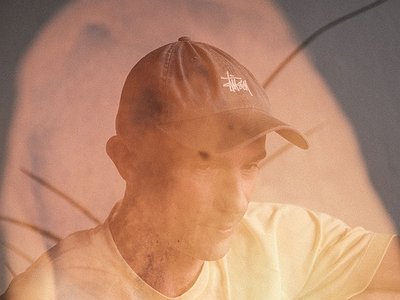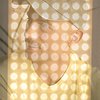Part 1
Name: Massimiliano Pagliara
Nationality: Italian
Occupation: Producer, DJ
Current release: Massimiliano Pagliara's See You In Paradise is out via Permanent Vacation.
Gear recommendations: If you are looking for a nice studio mixer, I’d recommend checking out the SSL Big Six. As I mentioned above, this was life changing for me.
From the oldies, my latest acquisition is the Korg DV-800, also known as the Maxi-Korg, from 1975. Wonderful (and actually a bit underrated) duo-phonic synth, with that raw and pristine 70s synth sound.
If you enjoyed this interview with Massimiliano Pagliara and would like to know more about his work, visit him on Instagram, Facebook, and Soundcloud.
What was your first studio like?
When I decided to get more serious about music, back in 2006, I was just a DJ and didn't really have much of a clue about production and studio equipment whatsoever. A dear friend of mine, Simon aka Jules Etienne, with whom I worked on countless projects, showed me how to use Ableton Live (I started with Live 4). That was my first real DAW experience. Before that I tried Reason and Garage Band, but they didn’t really do it for me.
Another dear friend of mine, Daniel Wang, showed me what an analogue synth is and what you can do with it. That synth was the iconic Roland SH-101, which was also the very first mono-synth I ended up buying. I actually immediately fell in love with vintage analogue gear. So, I went crazy on Ebay and started buying my first machines and slowly built my home studio.
Back then I lived in a one-room apartment, in Berlin Fhain, and my bedroom became my daily playground filled up with records and machines. Besides the SH-101, I also had a Juno 106, a Korg Polysix, a JX-3P, a JX-8P, a Prophet 5, a TR-606, a TR-707, a TR-727, a DR-550, A Drumtraqs, a Linndrum, a Micro-Korg, an Electribe SMKII, a Mackie vlz-1604 pro mixer, 2 Alesis M1 620 Studio Monitors. There was also the classic DJ Set-up (2 Technics 1200 MK and a cute little Pioneer DJM-300).
[Read our feature on the Juno 106]
This thing for machines became some sort of obsession, and I was always on the hunt for new ones. So yeah, I was constantly buying / selling gear on Ebay and changing my studio bit by bit. I was very committed.
How and for what reasons has your set-up evolved over the years and what are currently some of the most important pieces of gear for you?
So having developed this strong passion for gear, I have constantly been looking to add more ever since.
Eventually I moved into a bigger apartment, which luckily enough happened to be right next door my former one. That allowed me more space for the machines. I actually ended up buying this place and so, 10 years later, I decided to remodel / renovate the whole thing, the studio too. This was right when the pandemic hit and we were locked down. There was not much else one could do, so I thought it’s the right time to clean-up and redesign things in my house and studio.
I kept some of my all time favourites machines (TR-808, SH-101, Juno 106, Jupiter 4, Polysix, MonoPoly, Minimoog, Prophet 5), and I decided to let go of a few. It wasn’t easy, and some of them I do still regret. But somehow I suddenly had this feeling I had way too many and wanted to reduce, in order to “breathe”, to have more light and space in my studio / living room ( for example, I had a huge rack that blocked my windows).
[Read our feature on the Korg MonoPoly]
Nonetheless, I acquired some new stuff too, like the wonderful Deckard’s Dream by The Black Corporation, The OB-6 by Sequential Circuits, swapped the old Prophet 5 with the new one, the Jomox Alpha Base, changed my main mixer twice (currently using the SSL Big Six, which was life-changing and I am really in love with it) as well as my studio monitors. I now use the Neumann KH120 A. These are way more accurate than my previous ones.
So basically I got rid of some oldies (these huge and heavy keyboards take up so much space!) and integrated new ones, which I am really happy about. Somehow, after all these years, I have also realised that you don’t need all these machines. Like some people say: less is more!
Some see instruments and equipment as far less important than actual creativity, others feel they go hand in hand. What's your take on that?
I love my machines! They are essential to my creative process. I love the performative part to it. Although I am not classically trained and my skills are quite limited in that regard, I love playing an actual keyboard. I cannot imagine making music without it. They really inspire me.
A studio can be as minimal as a laptop with headphones and as expansive as a multi-room recording facility. Which studio situation do you personally prefer – and why?
I feel pretty lucky that I’ve always had my studio at home from day one. I always wanted the living and working spaces to be together. I am not the kind of person that needs to go to the “office” to get work done. I can do that from home. So, my studio has this cozy “homey” vibe which I love, yet with pro studio acoustic treats and a nice set-up, that leads to a very efficient and productive experience.
Feels just right to me, as it is now.
From traditional keyboards to microtonal ones, from re-configured instruments (like drums or guitars) to customised devices, what are your preferred controllers and interfaces? What role does the tactile element play in your production process?
I still tend to prefer old machines to new ones. What I like about them is not just the sound quality - I still think that old synths do sound warmer and “fatter”- but also their simple layout and designated knobs / sliders for each parameter.
I am a very tactile person, therefore I love the fact that I can touch those knobs and shape the sound I am looking for, with my own hands. It all works very well together: some sort of interesting and almost spiritual connection between what I am imagining, my feelings and then translating everything through my body using a machine.
That said, my current favourite controllers/interfaces that I have are Ableton Push, the SSL Big Six mixer (with integrated audio interface) and an additional sound-card, my RME UC Fireface.
In the light of picking your tools, how would you describe your views on topics like originality and innovation versus perfection and timelessness in music? Are you interested in a “music of the future” or “continuing a tradition”?
When I make music I am mostly concerned about being true to myself and expressing what I'm feeling in that specific moment. Music, more than anything else, can say things that words cannot say, so it is a very deep inner experience. I try to listen as closely as possible to myself.
In this sense, I am less interested in trying to create something new. I just want to be myself and create something that people can listen to and they can go like: oh yes, this sounds like Massi.
I hope, though, that some of my songs / tracks will have that kind of impact, also when I am no longer here. I hope that my music can have the same timeless effect of the likes of Patrick Cowley, Giorgio Moroder, Frankie Knuckles, Aphex Twin to name just a few. When I listen and / or play some of their early productions, they still sound so fresh and up to date somehow. And I am always so amazed by the fact that some of these tracks are like 40 + years old now!
Most would regard recording tools like microphones and mixing desks as different in kind from instruments like keyboards, guitars, drums and samplers. Where do you stand on this?
I am not the most qualified producer when it comes to microphones and mixing desks, to be very honest. I did change 3 different mixers over the past 16 years, and finally I feel like I found what I was looking for: the SSL Big Six, a nice warm sounding mixer, with plenty of routing possibilities and beautiful layout / design.
I have had the same condenser Mic (AKG C2000 B) since day one: whenever I work with singers in my studio, that’s what I am still using. That said, I am definitely more into synths and drum machines than mixers or microphones. So, if I were to choose, I would always prefer to buy another synth rather than a mixer or a mic.






